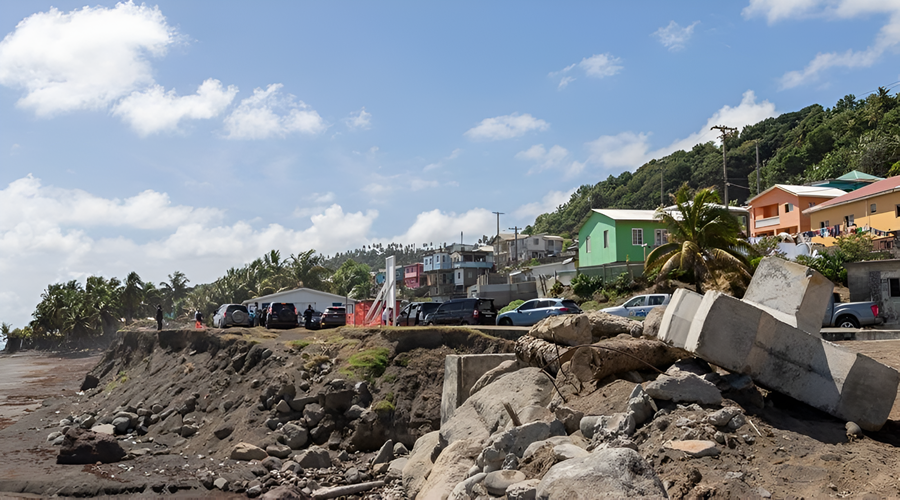On Sunday, St Vincent Prime Minister Ralph Gonsalves declared that the International Court of Justice’s (ICJ) advisory opinion on climate change marks a significant victory for small states like St Vincent and the Grenadines (SVG). He stated that it positions the island nation favorably in history, as his administration has long championed climate justice, particularly at the United Nations.
Gonsalves explained that specific questions were posed, and the ICJ provided answers through its advisory opinion. These questions essentially were:
What are the obligations of States under international law to ensure the protection of the climate system and other parts of the environment from anthropogenic emissions of greenhouse gases for States and for present and future generations?
(b) What are the legal consequences under these obligations for States where they, by their acts and omissions, have caused significant harm to the climate system and other parts of the environment, with respect to:
(i) States, including, in particular, small island developing States, which due to their geographical circumstances and level of development, are injured or specially affected by or are particularly vulnerable to the adverse effects of climate change?
(ii) Peoples and individuals of the present and future generations affected by the adverse effects of climate change?
Saint Vincent and the Grenadines is among the nine CARICOM countries associated with the matter, which was initiated by Vanuatu. Gonsalves noted that Antigua and Barbuda, through their role in the Alliance of Small Island States at the time, also played a crucial part.
“The advisory opinion is not binding; however, it holds persuasive weight for countries. We can leverage it in multilateral negotiations under the Conference of Parties of the United Nations Framework Convention on Climate Change to secure better deals for Small Island Developing States, including reparations and recompense related to climate change and its effects.”
“The judgment itself specifies that affected states can approach the court if they can establish a clear link between the damage and the specific country in question, against which they are bringing the case.”
Gonsalves elaborated that, legally, the body of law to be relied upon encompasses not only specific climate change laws but also the broader spectrum of laws concerning human rights.
“In other words, a clean and safe environment is a human right. If another country causes man-made emissions resulting in rising sea levels, erosion, and severe weather events like devastating hurricanes—with increased frequency and intensity—and this can be linked to their actions on climate change, compensation can be sought.”
“A particularly noteworthy aspect of the judgment is that if rising sea levels or coastal erosion occur, a state like Saint Vincent and the Grenadines is not obligated to redraw its map to redefine its landmass boundaries. The boundary remains where it was before the erosion or high seas occurred.”
Gonsalves acknowledged that not all states adhere to ICJ rulings, including the U.S. and others. However, he explained that under the United Nations Charter, subscription to the charter generally implies subjection to the ICJ. A state can, however, actively declare that it does not subscribe to the ICJ’s jurisdiction, effectively placing a reservation on that matter.
The nine CARICOM states were represented at the ICJ in The Hague in December by Justin Serbian, a lawyer from Trinidad, and Shannel Hadaway, a Vincentian who holds the brief at the Attorney-General’s chambers concerning laws related to climate change.
Download the advisory opinion here



